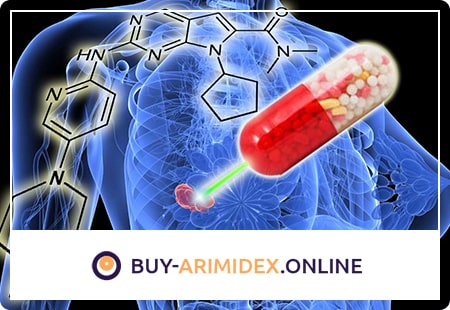
Hormone therapy
A hormone-dependent breast tumor requires specific treatment, since receptors that are sensitive to the female hormone are located on the surface of its cells, under the influence of which the neoplasm grows.
For the treatment of hormone-dependent neoplasms of the mammary gland, doctors of the Oncology Clinic of the Yusupov Hospital use the most effective hormonal preparations. All of them are registered and approved for use in the Russian Federation. This treatment is sometimes referred to as anti-estrogen therapy because it aims to lower the level of female sex hormones in the patient's body.
Oncologists at the Yusupov Hospital carry out hormonal therapy with drugs that have a minimal spectrum of side effects. Doctors adhere to European protocols for the treatment of breast cancer. At the same time, they individually approach the choice of drugs and drug doses for each patient.

Indications
75% of breast tumors are hormone dependent. In these cases, hormone therapy is effective. The doctors of the Oncology Clinic of the Yusupov Hospital, when selecting the optimal treatment regimen, take into account the following points:
- General condition and menstrual status of the patient;
- Stage of the disease;
- The nature of the course of the tumor process;
- Prevalence of the tumor.
Hormone therapy for breast cancer is carried out with the following goal:
- Reducing the likelihood of developing a malignant neoplasm in women who are at high risk;
- Reducing the risk of relapse in non-invasive cancer;
- Reducing the likelihood of recurrence or the appearance of new tumor foci after surgery, radiation and chemotherapy;
- Reducing the size of the neoplasm in invasive cancer;
- Palliative therapy for metastatic cancer.
Hormone therapy is often used as a “safety net” after other breast cancer treatments, since neither surgery, nor radiation or chemotherapy can fully guarantee that the tumor will not recur. The drugs that are used for hormone therapy affect the entire body, suppress the effect of estrogen, therefore, they are prescribed only in the complex treatment of hormone-dependent neoplasms.
Hormone therapy is performed at all stages of breast cancer. Self-medication for this disease is unacceptable, as it can cause intensive tumor progression and subsequent death. Oncologists at the Yusupov Hospital are developing cancer treatment regimens that meet international standards.
Views
Hormone therapy for breast cancer is aimed at solving several problems, depending on which there are three types of this method:
- Adjuvant (prophylactic);
- Neoadjuvant;
- Medical
Adjuvant therapy is used as a complementary treatment after surgery, treatment with anticancer drugs, and radiation therapy. Its goal is to prevent relapse. Typically, the duration of therapy varies from 5 to 10 years. It is usually given with aromatase inhibitors or tamoxifen.
Neoadjuvant therapy is a complex treatment before radiotherapy or surgery. She pursues the following goals:
- Reducing the size of the neoplasm and its metastases;
- Reducing the volume of surgical intervention;
- Increased overall and disease-free survival;
- Determination of the sensitivity of tumor formation to cytostatics.
The duration of this type of hormone therapy is from 3 to 6 months. If the treatment is positive, doctors extend the duration of the use of hormonal drugs.
Oncologists carry out therapeutic therapy with hormonal drugs in the case of inoperable cancer and generalization of the tumor process. Also, therapeutic therapy is carried out for young women with metastases to the lungs or liver and during the period of remission. After the use of neoadjuvant therapy, the tumor decreases in size in 80% of patients, and complete morphological remission is observed in 15% of women.

Drugs
At the Yusupov hospital, oncologists carry out all types of hormonal therapy. Doctors select the drugs individually, depending on whether the woman's menstrual cycle is preserved. Premenopausal patients who have a constant menstrual cycle are prescribed tamoxifen for 5 years in the early stages of the disease, remove the ovaries or suppress their function with medication. After this, aromatase inhibitors are prescribed.
or women who are in a climacteric or postmenopausal state (in menopause), oncologists prescribe aromatase inhibitors after surgery, radiation or chemotherapy. If the patient has taken tamoxifen before menopause, it is replaced with aromatase inhibitors, and if she has been taking tamoxifen for the past five years, femara is prescribed instead. In the event that, during treatment with tamoxifen, oncologists detect a new tumor or relapse, it is replaced with aromatase inhibitors. When relapse is detected during treatment with an aromatase inhibitor, use faslodex, tamoxifen, or another aromatase inhibitor instead.
The choice of therapy depending on the type of tumor
Breast tumors are either benign or malignant. There is a risk of transformation of a benign neoplasm into a malignant tumor. Therefore, patients are prescribed tamoxifen. It is also used to treat ductal carcinoma in situ.
When a woman is diagnosed with a HER2-positive cancer, oncologists give preference to aromatase inhibitors. Also, drugs of this pharmacological group are prescribed when tamoxifen is ineffective.
Preparations: details
Tamoxifen is an antiestrogen that prevents estrogens from binding to cancer cells, thereby stopping tumor growth. His oncologists prescribe in the early stages of the disease and women who are in premenopausal women. The pharmacy chain receives the drug in tablets under the trade name Tamoxifen-Nolvadex. In some patients, when taking this hormonal agent, vaginal dryness or excessive discharge begins, sweating increases, the skin turns red, and body weight increases.
Aromatase inhibitors block the production of estrogen in a woman's body. They are prescribed to patients after menopause. Many women managed to overcome breast cancer by taking one of the drugs of this pharmacological group (femara, arimidex, aromazine). Each drug is prescribed by oncologists in certain cases:
- Femara - in the early stages of the disease after surgery for patients who have been taking tamoxifen for five or more years;
- Arimidex - in the early stages of the disease immediately after removal of the neoplasm;
- Aromasin - in the early stages of cancer in women who have previously taken tamoxifen for several years.
For most women, these hormonal medications do not cause side effects. Some patients report nausea, joint pain, and vaginal dryness. With prolonged use of aromatase inhibitors, bone fragility develops, so doctors, along with these drugs, simultaneously prescribe calcium and vitamin D.
Zoladex (Goserelin) is an analogue of natural LHRH (luteinizing hormone releasing hormone). The drug suppresses the function of the pituitary gland, resulting in a decrease in the amount of hormones that are involved in the synthesis of estrogen. When you stop taking it, the pituitary gland begins to work in an enhanced mode. Therefore, doctors of the oncology clinic recommend that patients, after several months of taking zoladex, remove the ovaries with an operation or irradiate them. The drug has side effects: reduces libido (sex drive), causes redness of the skin, heavy sweating, headaches, mood swings. Zoladex is injected intramuscularly once a month into the lower part of the anterior abdominal wall.
Side effects
The hormonal drugs prescribed by oncologists to treat and prevent breast cancer can have the following side effects:
- Increased appetite;
- Weight gain;
- Dryness in the vagina;
- Early onset of menopause;
- Edema of the lower extremities;
- Excessive fatigue;
- Intense sweating;
- Attacks of heat;
- Hair loss;
- Myalgia (muscle pain);
- Increased irritability;
- Depressive states.
Hormone therapy is the most gentle breast cancer treatment. However, some pharmacological drugs have side effects. Aromatase inhibitors cause disturbances in the gastrointestinal tract and increase cholesterol levels, increasing the risk of thrombosis. After long-term use of Tamoxifen, clogged veins, infertility, or uterine cancer may develop.
Food
From the moment a tumor is detected in the mammary gland, a woman needs to reconsider her diet. A properly selected diet will significantly improve overall well-being and reduce the risk of further development of the disease.
Nutrition for cancer should be as balanced as possible, with a large amount of vitamins and minerals. It is necessary to eat often, but in small portions, while adhering to the principle of separate meals.
Doctors believe that nutrition for hormone therapy for breast cancer should be exactly like this:
- eat a lot of brightly colored vegetables and fruits (carrots, pumpkin, tomatoes, cabbage, cranberries, garlic) and cereals (brown rice, sprouted wheat, bran);
- the calorie content of the diet should depend on the patient's weight: overweight women should try to get rid of those extra pounds using a diet;
- reduce the amount of animal fats in the diet and increase the amount of vegetable fats;
- eat foods rich in calcium and vitamin D;
- refuse products that contain phytoestrogens;
- completely exclude smoked, fried, salty, spicy foods and foods with preservatives;
- limit the amount of sugar (including drinks with its content);
- completely give up alcohol, smoking and drugs;
- eat red meat as little as possible;
- be sure to add sea fish, seafood, seaweed to the diet;
- consume 1-2 servings of dairy products daily;
- drink as much raw water as possible (at least 2-2.5 liters per day), green tea and herbal teas.
Patient reviews
Women who are diagnosed with breast cancer experience intense anxiety, despair and loss of self-confidence. Hormone therapy for breast cancer, positive reviews of which are left by many patients, allows you to suppress the development of hormone-dependent malignant tumors.
Women taking hormonal medications report an improvement in their quality of life. With the correct selection of the drug, side effects in patients in most cases are absent. Oncologists at the Yusupov Hospital draw up an individual treatment program for each woman together with other specialists of the medical institution.
Forecast
With a timely visit to an oncologist, the likelihood of a full recovery is extremely high. At the initial stage of the disease, the five-year survival rate of women is 85%, at the second stage this figure drops to 76%. The lowest survival rate of patients at the fourth stage is less than 18%.
The cost
The cost of drug treatment for hormone-dependent breast cancer depends on the following factors:
- General condition of the patient;
- The presence of concomitant pathology;
- The size of the neoplasm;
- Treatment regimens.
 DE
DE FR
FR IT
IT ES
ES



